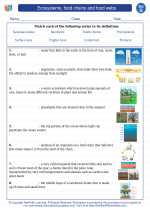Respiratory System
The respiratory system is responsible for the exchange of gases, specifically oxygen and carbon dioxide, between the body and the environment. It includes the nose, trachea, bronchial tubes, and lungs.
Organs of the Respiratory System
- Nose: The primary entry point for air into the respiratory system. It filters, warms, and moistens the air.
- Trachea: Also known as the windpipe, it carries air from the nose to the lungs.
- Bronchial Tubes: These tubes branch off from the trachea and carry air into the lungs.
- Lungs: The main organs of the respiratory system where gas exchange takes place. The alveoli in the lungs are responsible for exchanging oxygen and carbon dioxide with the blood.
Respiration Process
The process of respiration involves inhalation, where air is taken into the lungs, and exhalation, where air is expelled from the lungs. During inhalation, the diaphragm contracts and moves downward, while the intercostal muscles expand the ribcage, allowing the lungs to fill with air. During exhalation, the diaphragm relaxes and moves upward, and the intercostal muscles relax, allowing the lungs to expel air.
Gas Exchange
Once air reaches the alveoli in the lungs, oxygen diffuses into the blood while carbon dioxide diffuses out of the blood into the alveoli. This oxygen-rich blood is then circulated throughout the body, providing oxygen to the cells, while carbon dioxide is carried back to the lungs to be exhaled.
Respiratory System Disorders
Disorders of the respiratory system can include asthma, bronchitis, pneumonia, and chronic obstructive pulmonary disease (COPD), among others. These conditions can affect the ability to breathe and can be managed through medication and lifestyle changes.
Study Guide
- What are the main organs of the respiratory system?
- Describe the process of respiration.
- Explain how gas exchange occurs in the lungs.
- List and describe at least three respiratory system disorders.
◂Science Worksheets and Study Guides Seventh Grade. Ecosystems, food chains and food webs

 Activity Lesson
Activity Lesson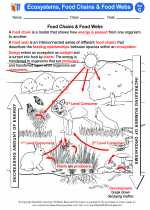
 Worksheet/Answer key
Worksheet/Answer key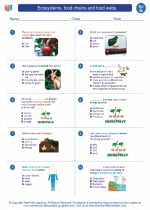
 Worksheet/Answer key
Worksheet/Answer key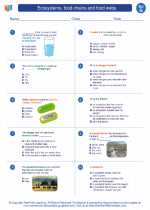
 Worksheet/Answer key
Worksheet/Answer key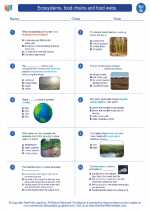
 Vocabulary/Answer key
Vocabulary/Answer key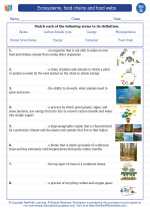
 Vocabulary/Answer key
Vocabulary/Answer key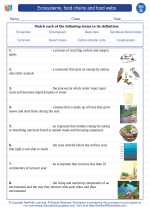
 Vocabulary/Answer key
Vocabulary/Answer key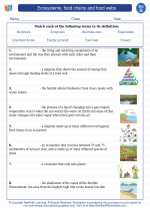
 Vocabulary/Answer key
Vocabulary/Answer key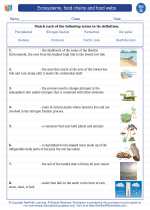
 Vocabulary/Answer key
Vocabulary/Answer key